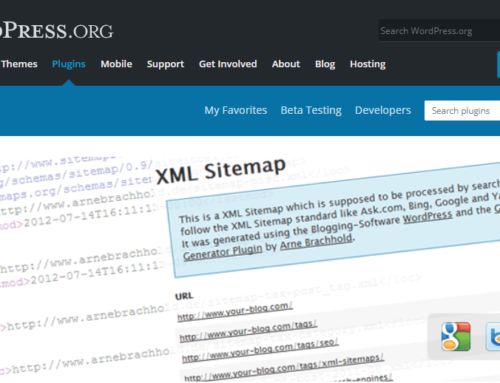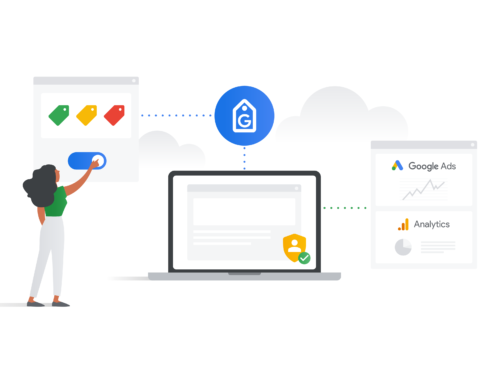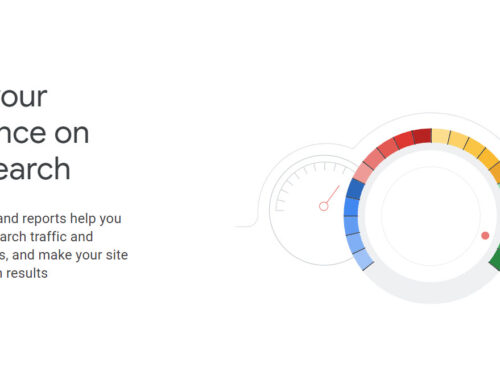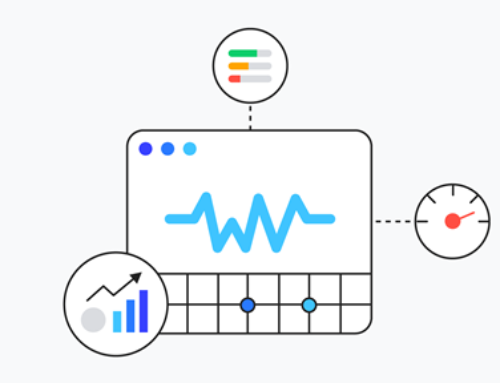In the ever-evolving landscape of Search Engine Optimisation (SEO), staying ahead of the competition is crucial to ensure your business’s online success. One of the most powerful tools at our disposal is structured data optimisation.
By implementing structured data markup on your website, we can provide search engines with valuable context and information about your content, enabling them to better understand and categorise your web pages.
Structured data optimisation is a fundamental SEO technique that involves adding special code to web pages, providing search engines with context and relevant information about the content. This organised data helps search engines better understand the website’s content and purpose, leading to improved visibility in search results and the potential for an enhanced rich snippet. Embracing structured data optimisation is crucial for businesses looking to boost their online presence and attract a more targeted audience.
This structured approach not only enhances your website’s visibility in search engine results but also improves the user experience by presenting more informative and engaging rich snippets. At Integral Media, our agency is committed to harnessing the potential of structured data to elevate your SEO strategy and propel your business to new heights in the digital realm.
Why Is Structured Data So Important For Businesses?
Structured data is critical for businesses because it can offer valuable gains in search engine visibility, organic traffic, and user experience. Structured data tools can help businesses determine which areas of their unstructured data need to be optimised for better search engine results. For example, an agency like Integral Media can use structured data tools to identify which pages on a website have the potential to appear in rich snippets and then help businesses optimise those pages for structured data. It can also assist with:
- Search engine visibility: Structured data can help businesses appear in rich snippets, which are the enhanced search results that appear below the organic search results. Rich snippets can include things like star ratings, reviews, and price information. This can make businesses’ web pages more visually appealing and informative, leading to more clicks.
- Organic traffic: Structured data can help businesses drive more organic traffic to their website by making their web pages more visible in search results and increasing their click-through rate (CTR). This can lead to more leads and sales for businesses.
- User experience: Structured data can help businesses improve their user experience by making their web pages more accessible to users with disabilities and to search engines. This can lead to a better overall user experience, improving customer satisfaction.
The Benefits of Structured Data
Structured data offers numerous benefits that significantly impact a website’s online performance and visibility. By providing search engines with clear context and structured information about the content, websites can achieve higher search engine rankings, enhanced search snippets, and improved visibility in rich search features. This, in turn, leads to increased organic traffic, a more engaging user experience, and, ultimately, a higher potential for conversions and business success.
Enhanced Search Engine Visibility
Enhanced search engine visibility, in terms of structured data optimisation, refers to a website’s improved presence and prominence in search engine results pages (SERPs) due to the strategic implementation of structured data markup.
When search engines like Google, Bing, or Yahoo crawl web pages, they rely on various signals to understand the content and relevance of the information presented. Structured data markup provides explicit context and structured information about the content, making it easier for search engines to interpret the page’s content accurately.
Click-Through Rates
Improved click-through rates (CTR) refer to the increase in the percentage of users clicking on a website’s link in the search engine results pages due to the implementation of structured data markup. When a website appears in search results with rich snippets, knowledge graphs, or other visually enhanced formats, it stands out more prominently and provides additional valuable information to users.
Rich Snippets And Enhanced Search Results
When web pages are marked up with structured data, search engines can extract and display specific information from the content in a more structured and visually appealing manner.
A rich snippet and enhanced search results, achieved through adding structured data to a website, make the website stand out from competitors in the Google search results and provide users with more valuable information upfront, leading to higher click-through rates and an improved overall user experience. By leveraging structured data to enhance search result appearances, businesses can attract more qualified traffic to their websites, thereby increasing the chances of conversions and achieving their marketing goals.
Voice Search and AI Assistance
Structured data markup benefits voice search and AI assistant optimisation by improving the accuracy and relevance of voice search results. This can lead to higher organic traffic and improved online visibility.
Voice search and AI assistant optimisation involve tailoring a website’s content and structured data markup to cater to voice-based search queries through virtual assistants like Siri, Alexa, or Google Assistant. With the rise of voice-activated devices and smart speakers, users increasingly use natural language to search for information. Embracing voice search and AI assistant optimisation alongside structured data markup is crucial for businesses seeking to stay ahead in the digital landscape.
Our Approach To Structured Data Markup
Comprehensive website analysis and schema markup audit is a critical first step in harnessing the power of structured data optimisation. During this process, our digital marketing agency thoroughly examines every aspect of your website to understand its current performance, strengths, and weaknesses. We assess factors such as site structure, content organisation, keyword usage, and user experience to identify areas that can benefit from structured data implementation.
Identifying Structured Data Opportunities
By analysing the existing web page content, we can create structured data using schema markup to provide search engines with valuable context and information about the content. This structured approach not only enhances the website’s visibility in search results but also increases the likelihood of appearing in rich results, presenting visually appealing and informative snippets. By identifying and optimising for relevant structured data opportunities, we ensure your website communicates effectively with search engines like Google search, leading to improved rankings, increased organic traffic and a better user experience.
By understanding your website’s existing content and how it aligns with user intent, we can identify relevant structured data opportunities. These opportunities involve enriching specific types of content with structured data markup, which can help search engines better understand your content and improve the overall user experience.
Our data-driven approach ensures that we implement the most suitable structured data markup, enabling search engines to understand your content more effectively and present it in enhanced search results, thereby elevating your website’s visibility and driving targeted traffic to your business.
Developing, Implementing and Monitoring Schema Markup
At our digital marketing agency, we specialise in developing structured data strategies to elevate your website’s SEO performance. We carefully consider your business goals and target audience to identify the most relevant schema types to use in the form of schema markups. Our skilled team then expertly implements the schema markup code and thoroughly tests it to ensure accuracy and compatibility.
We leave no stone unturned in ensuring that the structured data aligns seamlessly with your website’s content, fostering a robust connection with search engines like Google. The result? Enhanced visibility in Google search results and a remarkable user experience that sets your website apart from the competition.
We also offer ongoing monitoring and optimisation services to track the performance of the structured data and make necessary adjustments to ensure your website maintains a competitive edge. With our dedicated focus on developing, implementing, and refining your structured data strategy, we pave the way for enhanced online visibility, increased organic traffic, and lasting success in the digital landscape.
Types of Structured Data Markup
There are different schema markup types, so it’s important to understand and learn the difference. Structured data markup comes in various types, each designed to provide context and specific information about different types of content on a web page. Some common types of structured data markup include:
- Article markup
- Product markup
- Recipe schema markup
- Event schema markup
- Video search schema markup
- Local business schema markup
- FAQ schema markup
- Organisation schema markup
What Is Schema Markup?
Schema.org markup, often simply called schema markup, is a collaborative effort between major search engines like Google, Bing and Yahoo. It provides a standardised way to structure and annotate web content, enabling search engines to understand the context and meaning of the information on a web page more effectively. By incorporating schema markup into a website’s code, webmasters can provide explicit signals to search engines about the type of content present, such as articles, products, events, reviews, and more.
Schema.org markup uses a collection of agreed-upon schemas, or vocabularies, that define the properties and relationships of different types of content. Each schema is represented by specific tags and properties corresponding to the web page’s relevant information. For example, the “Product” schema includes tags for product name, price, description, and more, while the “Event” schema has tags for event name, date, location, and ticket information.
What Is JSON-LD Markup?
JSON-LD (JavaScript Object Notation for Linked Data) implementation is a method of adding structured data markup to a web page using JSON format. JSON-LD is one of Schema.org’s recommended formats for presenting schema markup by Schema.org, a collaborative effort between major search engines to provide a standardised way of structuring web content.
In JSON-LD implementation, webmasters include a script within the HTML code of a web page. This script contains the structured data in JSON-LD format, representing the content’s properties and relationships according to the appropriate schema types. The JSON-LD data is hidden from users and does not affect the visual presentation of the page. Instead, it serves as a behind-the-scenes signal to search engines, providing them with valuable context and information about the content on the page.
What Is Microdata?
Microdata is a markup format that adds structured data to HTML content, making it more understandable for search engines. It is one of the methods recommended by Schema.org for implementing schema markup. Microdata allows webmasters to provide additional context and semantic meaning to the information on a website, helping normal search results better comprehend the content and its relevance to user queries.
In Microdata, webmasters use HTML attributes to define the properties and relationships of different types of content on a web page. These attributes include itemscope, itemtype, and itemprop.
What Is RDFa?
RDFa stands for Resource Description Framework in Attributes. It is a markup format used to add structured data to HTML content, allowing webmasters to provide semantic meaning and context to the information on a web page. Like Microdata and JSON-LD markup, RDFa is one of the methods recommended by Schema.org for implementing schema markup.
RDFa is particularly useful when a website’s content is dynamically generated or has multiple data sources, as it allows for more seamless integration of structured data. It enables search engines, including other search engines beyond the major ones, to better understand the relationships and context of information, potentially leading to improved search engine visibility and enhanced user experience. By implementing RDFa and structured data, webmasters can transform unstructured data into a structured format, providing valuable context and meaning to the content.
How Does Structured Data Optimise SEO Strategy Efforts?
Structured data optimise SEO efforts by providing a standardised and organised approach to presenting web content, enabling search engines to better understand, categorise, and display relevant information in search results.
Increased Visibility In Google Search Results
- When your website ranks higher in search results, it is more likely to be seen by potential customers.
- This increased visibility can lead to more people clicking on your website, which means more traffic and more opportunities to generate leads and sales.
- Better visibility can also improve your brand reputation and credibility, making you appear more authoritative and trustworthy to potential customers.
- Overall, increased visibility in SERPs can help you grow your business and succeed.
Higher Rankings and Improved Organic Traffic
- Higher rankings mean that your website is showing up closer to the top of the search results pages (SERPs) for the keywords and phrases people are searching for.
- Improved organic traffic means that more people are finding your website through Google and other search engines without you having to pay for ads.
When your website has higher rankings and improved organic traffic, it means that more people are seeing your website and learning about your business. This can lead to more website visitors, leads, and sales.
Here are some of the benefits of having higher rankings and improved organic traffic:
- Increased brand awareness: When more people see your website, they become more aware of your brand. This can lead to more people remembering your business when they are ready to buy a product or service.
- More leads: When more people visit your website, you have more opportunities to generate leads. You can capture leads by offering free trials, signing up for email lists, or offering other incentives.
- More sales: With more leads, you have more opportunities to close sales. By following up with leads and providing them with excellent customer service, you can turn more leads into customers.
Improved Relevancy and Context in a Search Result
When search engines better understand a website’s content, they can better understand the context of a user’s search query. This allows them to present more relevant search results to users.
- Relevancy means that the search result is closely related to the user’s search query.
- Context means that the search result provides additional information that helps the user understand the result’s relevance.
For example, if a user searches for “best digital marketing agencies in Melbourne,” a search engine that understands the context of the query will be more likely to present results that include agencies, locations, and client testimonials.
Improved relevancy and context in search results can benefit both users and businesses. Users are more likely to find the information they seek, which leads to higher satisfaction and a better user experience. Businesses are more likely to receive clicks on their search results, which leads to more traffic and leads.
Integration With SEO Strategy
- Enhanced visibility in search results: Structured data can help your website appear in rich search snippets, which are the expanded boxes that appear at the top of search results. These snippets can include more information about your website, such as your website’s title, description, and images. This can help your website stand out from the competition and attract more clicks.
- Better user experience: Structured data can help improve the user experience of your website. This is because it allows search engines to better understand your website’s content. This can lead to more relevant search results for users, which can improve their overall experience with your website.
- Insights and analytics: Structured data can also help you gather insights and analytics about your website’s performance. This information can help you improve your SEO strategies and content optimisation efforts.
- Rich search features and knowledge graph integration: Structured data can help your website qualify for rich search features, such as featured snippets and knowledge graph integration. These features can give your website more prominence in search results, which can help you attract more traffic.
- Competitive advantage: Using structured data effectively gives your website a competitive advantage over your competitors. This is because structured data can help your website stand out in search results and attract more traffic.
Choose Integral Media for Structured Data Markup and Optimisation
At Integral Media, our track record of delivering exceptional results speaks volumes about our commitment to excellence. When you choose our agency, you’re choosing a team of dedicated professionals who understand the intricacies of SEO and the power of structured data to transform your online presence.
We believe in the potential of structured data to drive your business forward. We are here to guide you every step of the way, ensuring that our strategies are tailored to your unique needs and goals. Together, we’ll elevate your website’s visibility, attract a more targeted audience, and unlock a world of opportunities in the digital landscape.
Get Started With Structured Data Optimisation Today
Ready to take your SEO to the next level with structured data optimisation? Don’t miss out on the opportunity to boost your online presence and drive impressive results for your business. Schedule a consultation with Integral Media today, and let our experienced team of experts show you how structured data can transform your website’s performance in search engine rankings and user experience.
During the consultation, we’ll analyse your unique needs, discuss your goals, and devise a tailored strategy to propel your business towards success. Don’t wait any longer; the path to SEO excellence starts here. Contact us now to schedule your consultation and embark on a journey of growth and digital triumph with Integral Media by your side.
Frequently Asked Questions
Reach Out To Integral Media
Don’t miss out on the incredible benefits of structured data optimisation for your website! Take action now and unlock a world of possibilities for your online presence. By implementing structured data, you’ll enjoy enhanced search engine visibility, higher click-through rates, and improved user experience.
With Integral Media, you’ll stand out from the competition with rich search results, attract more targeted organic traffic, and position your business as an authoritative source in your industry. With structured data, your SEO efforts will reach new heights, driving business growth and success.
Contact us today to embark on this SEO journey and experience the power of structured data optimisation firsthand. Let’s revolutionise your website’s performance together.






























